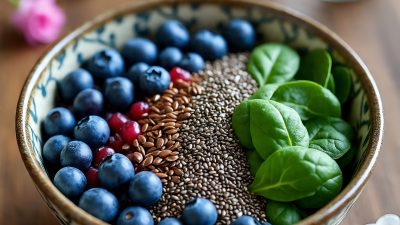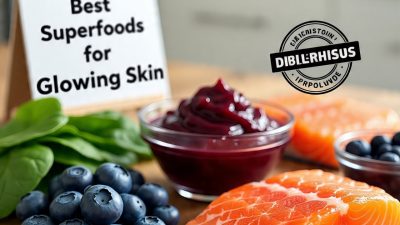How to Boost Recovery After Illness Introduction: Why Recovery After Illness Deserves Your Full Attention
When you’re sick, your main focus is on getting better. But the days and weeks after the fever breaks or the cough fades are just as critical. If you’ve ever wondered how to boost recovery after illness, you’re not alone—and you’re smart to think ahead. Many people rush back into their routines too fast, only to end up feeling exhausted, relapsing, or developing lingering symptoms. This post will guide you through how to boost recovery after illness naturally with practical steps related to nutrition, rest, hydration, and remedies that are effective and safe.
Contents
- 1 Understanding Why Recovery Is a Process
- 2 Eat Nutrient-Dense Foods That Support Healing
- 3 Go for Easy-to-Digest Meals First
- 4 Focus on Rebuilding Nutrient Stores
- 5 Prioritize Deep, Restful Sleep
- 6 Aim for 8+ Hours Nightly
- 7 Stay Hydrated to Flush Toxins and Replenish
- 8 Smart Hydration Choices
- 9 Use Immune-Supporting Supplements (If Needed)
- 10 Consider These Top Picks
- 11 Gradually Return to Physical Activity
- 12 Easy Movement Ideas
- 13 Calm the Mind to Support the Body
- 14 Stress-Relieving Practices
- 15 Try Gentle Natural Remedies at Home
- 16 Best Home Remedies to Include
- 17 Heal and Rebalance the Gut
- 18 Gut-Healing Foods
- 19 Be Mindful of Your Body’s Limits
- 20 Warning Signs You’re Pushing Too Hard
- 21 When to Consult Your Doctor Again
- 22 FAQ
- 23 Conclusion: Recovery is a Process—Not a Switch
Understanding Why Recovery Is a Process
Recovery doesn’t happen the moment your temperature returns to normal or your symptoms disappear. Your immune system has just fought a battle, and now your body is in rebuilding mode. That means tissues need repair, energy stores must be replenished, and immune cells must reset.
In this guide, you’ll learn how to boost recovery after illness in a realistic, sustainable way. It’s not about miracle cures—it’s about giving your body what it needs to finish healing the right way.
Eat Nutrient-Dense Foods That Support Healing
Nutrition plays a leading role in recovery. After illness, your body is depleted in multiple ways. Whether you were down with the flu, a viral infection, or something more serious, what you eat can either accelerate or delay your recovery.
Go for Easy-to-Digest Meals First
If your appetite is just coming back, don’t overwhelm your digestive system. Here are some gentle, healing foods:
- Bone broth – High in collagen, minerals, and hydration.
- Oatmeal – Soft on the stomach, packed with fiber and B-vitamins.
- Steamed vegetables – Easier to digest while providing essential nutrients.
- Applesauce, bananas, toast, and rice – Known as the BRAT diet, these foods are comforting and stomach-friendly.
When learning how to boost recovery after illness, start with these foundational meals before transitioning to more complex foods.
Focus on Rebuilding Nutrient Stores
Illness can drain your body of key nutrients. To bounce back, include:
- Vitamin C – Citrus fruits, strawberries, red bell peppers.
- Zinc – Pumpkin seeds, chickpeas, lean meats.
- Iron – Spinach, lentils, fortified cereals, red meat.
- Protein – Eggs, chicken, tofu, and legumes to rebuild tissue.
Eating well is essential if you want to master how to boost recovery after illness without delays or complications.
Prioritize Deep, Restful Sleep
Healing doesn’t just happen when you’re awake and eating well—it also happens while you sleep. That’s when your body regenerates tissue, balances hormones, and boosts immune function.
Aim for 8+ Hours Nightly
Quality sleep speeds up your body’s ability to recover. If you’re still feeling tired, don’t fight it. Naps during the day are also part of how to boost recovery after illness. Just make sure they don’t interfere with night-time sleep.
Tips for better rest:
- Stick to a sleep schedule.
- Avoid screens 1 hour before bed.
- Use a humidifier if recovering from a respiratory illness.
- Drink calming teas like chamomile or lemon balm before sleep.
Stay Hydrated to Flush Toxins and Replenish
Dehydration is one of the most overlooked parts of post-illness care. Vomiting, fever, and sweating all deplete fluid levels—and rehydration helps cleanse your system and repair cells.
Smart Hydration Choices
- Water with lemon – Boosts vitamin C and alkalizes the body.
- Coconut water – Restores electrolytes naturally.
- Herbal teas – Peppermint, ginger, and licorice root soothe digestion and inflammation.
- Clear broths – Offer both hydration and minerals.
Learning how to boost recovery after illness is incomplete without an emphasis on hydration. Try sipping small amounts frequently rather than gulping water all at once.
Use Immune-Supporting Supplements (If Needed)
If your diet alone isn’t cutting it, consider safe, proven supplements. Always consult with your healthcare provider before starting anything new.
Consider These Top Picks
- Vitamin D3 – Crucial for immune system regulation.
- Zinc lozenges – Can speed up healing from colds and sore throats.
- Probiotics – Restore gut flora after antibiotics.
- Elderberry or echinacea – Shorten symptom duration and reduce inflammation.
If you want to really know how to boost recovery after illness, understanding what supplements support healing can give you an extra advantage.
Gradually Return to Physical Activity
Once you’re feeling better, gentle movement can help improve circulation, reduce stiffness, and stimulate recovery hormones.
Easy Movement Ideas
- Short walks – Stimulate circulation and support mental health.
- Stretching or beginner yoga – Loosens muscles and supports lymphatic drainage.
- Breathwork – Helps with energy, especially if your lungs were affected.
Physical rest is key, but don’t confuse it with complete inactivity. Moving mindfully is part of how to boost recovery after illness holistically.
Calm the Mind to Support the Body
Stress is more than a feeling—it raises inflammation, weakens the immune system, and interferes with sleep. Reducing stress is central to how to boost recovery after illness, especially if anxiety lingers after symptoms fade.
Stress-Relieving Practices
- Meditation or prayer – Ground yourself and promote healing.
- Light journaling – Track your recovery and express gratitude.
- Spending time in nature – Improves oxygenation and mental clarity.
Simple habits can improve recovery outcomes. Don’t underestimate emotional well-being during this phase.
Try Gentle Natural Remedies at Home
Home remedies have been passed down for centuries for good reason. They’re gentle, supportive, and easy to incorporate.
Best Home Remedies to Include
- Honey and lemon in warm water – Soothes sore throat and boosts immunity.
- Steam inhalation – Clears sinuses and hydrates the respiratory tract.
- Ginger tea – Anti-inflammatory, supports digestion and nausea relief.
- Saltwater gargle – Reduces throat inflammation and bacteria.
When learning how to boost recovery after illness, the goal is to support—not suppress—your body’s natural healing processes.
Heal and Rebalance the Gut
Many illnesses and medications (especially antibiotics) disrupt your gut microbiome. Since your gut is home to 70% of your immune system, rebuilding its balance is key.
Gut-Healing Foods
- Yogurt and kefir – Contain live cultures to repopulate the gut.
- Fermented vegetables – Sauerkraut and kimchi are excellent.
- Prebiotic-rich foods – Garlic, leeks, asparagus, onions.
- Fiber – Beans, oats, chia seeds.
If you truly want to learn how to boost recovery after illness, nurturing your gut should be on your priority list.
Be Mindful of Your Body’s Limits
Just because you feel better doesn’t mean your body is done healing. Many people make the mistake of resuming all responsibilities too quickly.
Warning Signs You’re Pushing Too Hard
- Fatigue that worsens with activity.
- Headaches or dizziness.
- Return of fever or inflammation.
- Trouble sleeping or eating.
How to boost recovery after illness sometimes means doing less. Respect your current capacity and allow space for full restoration.
When to Consult Your Doctor Again
Even if you’re improving, there may be cases where follow-up care is important:
- Symptoms that return or worsen after 7–10 days.
- Long-term fatigue (more than 3 weeks).
- Ongoing digestive issues after medications.
- Persistent cough, breathing problems, or body aches.
Your doctor can evaluate if you need lab work or further treatment to support your recovery.
FAQ
What is the fastest way to recover from illness naturally?
The fastest way includes eating nutrient-rich foods, staying hydrated, getting enough sleep, managing stress, and using natural remedies like herbal teas, vitamins, and antioxidants.
How does nutrition help recovery after illness?
Nutrition plays a key role by providing essential vitamins, minerals, and proteins that support immune function, tissue repair, and overall healing. Focus on whole foods like fruits, vegetables, lean protein, and healthy fats.
Which foods are best for recovery after being sick?
Foods like bone broth, leafy greens, citrus fruits, yogurt, garlic, ginger, and turmeric support immune function and aid digestion, which helps your body recover faster.
How important is rest after illness?
Rest is vital for recovery. It allows your body to repair tissues, reduce inflammation, restore energy, and regulate immune responses. Try to get 7–9 hours of sleep and short naps if needed.
What natural remedies help boost recovery?
Remedies like warm saltwater gargles, herbal teas (e.g., chamomile, ginger), steam inhalation, honey, and elderberry syrup can ease symptoms and speed up healing without medication.
Conclusion: Recovery is a Process—Not a Switch
We often underestimate the body’s need to recover fully from even minor illnesses. You now understand how to boost recovery after illness using natural, evidence-backed strategies that work harmoniously with your body—not against it.
By focusing on real food, hydration, sleep, emotional care, and gentle remedies, you’re not just recovering—you’re rebuilding a stronger, more resilient version of yourself.


